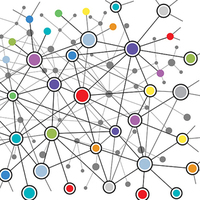Using Networked Agent Based Models to Improve Data Collection in Health Systems
DG Webster presents: "From Health Care to Health Governance: Using Networked Agent Based Models to Improve Data Collection and Stakeholder Engagement in Health Systems Science
Presenter: DG Webster, Associate Professor of Environmental Studies, Dartmouth
Title: From Health Care to Health Governance: Using Networked Agent Based Models to Improve Data Collection and Stakeholder Engagement in Health Systems Science
Co-authored by Semra Atyur, University of New Hampshire, College of Health and Human Services
Abstract: The developed world currently suffers substantial personal, political, and economic costs due to health threats such as obesity, smoking, and exposure to toxic substances. Many of these problems are increasing rapidly in developing countries as well (Horton et al., 2014; Institute of Medicine, 2010). Most research on these problems is at the individual level, focused on either understanding risky behavioral choices or testing policy interventions designed to increase healthier behaviors (Thaler et al. 1997; Viscusi, et al. 1986; Magat, et al. 2000). However, social norms and networks are also important determinants of the perception of and response to different types of risk (Willis & Dekay, 2007). Furthermore, attributes such as reciprocity, reverse causation, and feedback loops can have large effects on both individual- and policy-level responses to health threats (CDC, 2015). As yet, there has been limited research using systems science to enhance our understanding of the complex interactions between individual health and social contexts, but there is increasing recognition of the need for such work (Skinner & Foster, 2013). This paper proposes a new method for examining the flow of information and social influence across multiple levels of analysis using a networked agent based models in combination with stakeholder engagement. After baseline data are collected, engagement is used as a form of expert validation and to solicit additional information from participants. We further propose a sequential, quasi-experimental design to assess the effects of the engagement process on health behaviors, health care networks, and health governance in the form of provision of public goods.
The DINR Group's speaker series for the 2016-17 academic year has been made possible by funding from Dartmouth's Neukom Institute and from the Program in Quantitative Social Science at Dartmouth.
